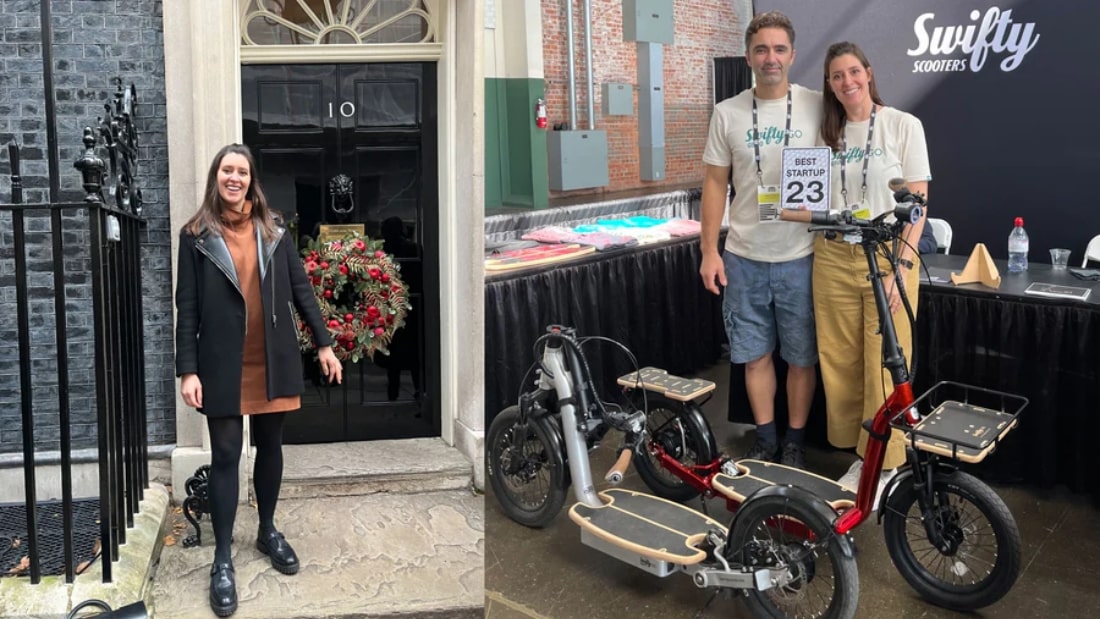
Swifty co-founder reflects on the status of UK law for electric scooters
139 days ago
2 minutes
Camilla Iftakhar, the co-founder of LEVA-EU member Swifty Scooters, examines the road-legal status of electric scooters under UK law
In short, there are paradoxes around the status of privately-owned electric scooters in the UK. Camilla Iftakhar points out that it is “legal to buy an electric scooter, it’s legal to sell an electric scooter, but it’s not yet legal to ride an electric scooter on the road (unless it is a rented one covered by e-scooter trials).” The law also allows the use of electric scooters on privately-owned land.
Camilla points out that electric scooters are currently classed as a ‘motor vehicle’ but are commonly designed to align with cycles. Motor vehicles require a number plate, tax, MOT, insurance and a driving license, under UK law.
With numerous changes to personnel at the top level of UK politics in the last few years, it seems that a promising Future Transport Bill which was announced in the 2022 Queen’s Speech has fallen by the wayside. This bill had been set to create a new vehicle class for electric scooters. However in the King’s Speech the following year, the Future Transport Bill was replaced by the Automated Vehicle Bill, leaving electric scooters falling into the gap.
Camilla points out that light electric vehicles, including electric scooters, have great potential in the fight for emissions reduction. Research results published in the 2022 LEV Climate Study reveal that a shift to LEVs for short trips, from ICE cars and EVs, results in a substantial potential emissions reduction of 44%.
Camilla has noticed other items which may result in changes to the way electric scooters are legally viewed. These include a proposal that they are viewed as “cycles” in the Road Traffic Offenses (Cycling) Bill, and a consultation, Smarter regulation: proposed changes to legislation for electrically assisted pedal cycles, which proposes that EAPCs (e-bikes) could have an increased motor power limit, from 250W to 500W. As most electric scooters have a 350W or 500W motor, Camilla speculates that this could be in preparation for e-scooter rules, however it is not clear whether that is part of the consideration behind the consultation.
Camilla concludes on an optimistic note: “Let’s hope that the new government have the foresight to include these clean, inclusive, equitable and joyful vehicles in their manifesto!”

LEVA EU
Campaign success
Lorem ipsum dolor sit amet, consectetur adipisicing elit, sed do eiusmod tempor incididunt ut labore et dolore magna aliqua.
Member profile
Lorem ipsum dolor sit amet, consectetur adipisicing elit, sed do eiusmod tempor incididunt ut labore et dolore magna aliqua.